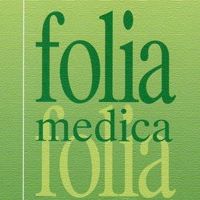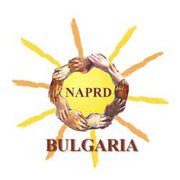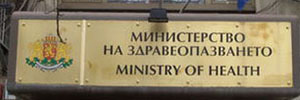
From 10th until 12th of Fabruary 2016 will take place a “Course for health care guidelines developers on treatments of rare diseases” in Milan, Italy. The present course is part of the project RARE-Bestpractices and intends to promote guideline quality standards for rare diseases across Europe. The course will provide participants with the opportunity to acquire skills necessary to produce health care guidelines on treatments of rare diseases. For more information and registration, please check the programme of the course and the RARE-Bestpractices project website .

 Folia Medica Journal has published a paper on the economic burden and health-related quality of life (HRQOL) of patients with cystic fibrosis (CF). The study within the European project BURQOL-RD included 33 patients with CF and 17 caregivers from Bulgaria. Median annual costs of CF in Bulgaria were € 24 152 per patient in 2012 as a reference year. Median annual costs in children were found to be significantly higher than those in adults – € 31 945 vs. € 15 714. This outcome came from statistically significant differences in costs for main informal carer and costs for other informal carers. Median annual drug costs were € 13 059. Bulgarian CF patients indicated lowered HRQOL results – 50.00 median VAS score. The full-text article is available
Folia Medica Journal has published a paper on the economic burden and health-related quality of life (HRQOL) of patients with cystic fibrosis (CF). The study within the European project BURQOL-RD included 33 patients with CF and 17 caregivers from Bulgaria. Median annual costs of CF in Bulgaria were € 24 152 per patient in 2012 as a reference year. Median annual costs in children were found to be significantly higher than those in adults – € 31 945 vs. € 15 714. This outcome came from statistically significant differences in costs for main informal carer and costs for other informal carers. Median annual drug costs were € 13 059. Bulgarian CF patients indicated lowered HRQOL results – 50.00 median VAS score. The full-text article is available 
 The Institute for Rare Diseases and the Faculty of Public Health at the Medical University of Plovdiv are organising a health technology assessment workshop, which will be held on 17-18 October 2015 at the Ramada Plovdiv Trimontium Hotel in Plovdiv.
The Institute for Rare Diseases and the Faculty of Public Health at the Medical University of Plovdiv are organising a health technology assessment workshop, which will be held on 17-18 October 2015 at the Ramada Plovdiv Trimontium Hotel in Plovdiv. The official programme of the 6th National Conference on Rare Diseases and Orphan Drugs is now available. 8 plenary sessions and 1 poster session will present the recent innovations in the personalised approach to rare diseases. Session topics include expert centres and reference networks for rare diseases, personalised health care to patients with rare disease, registries and health technology assessment for rare diseases. For more information, please visit the
The official programme of the 6th National Conference on Rare Diseases and Orphan Drugs is now available. 8 plenary sessions and 1 poster session will present the recent innovations in the personalised approach to rare diseases. Session topics include expert centres and reference networks for rare diseases, personalised health care to patients with rare disease, registries and health technology assessment for rare diseases. For more information, please visit the  National alliance of people with rare diseases is organizing a training workshop “Self-help Practises for Improving Quality of Life in Rare Diseases”. Lecturers will be Poli Paskova, Dr. Marieta Zheleva, Miaria Anastasova, Elena Leseva and Elena Eneva. Participants will have the opportunity to take valuable advises, to discover the possibilities of alternative self-help techniques and how best to use them. The seminar will be held on 10-11 October 2015 in Hotel “Rusalka”, Plovdiv. To read the preliminary programme (in Bulgarian), please click
National alliance of people with rare diseases is organizing a training workshop “Self-help Practises for Improving Quality of Life in Rare Diseases”. Lecturers will be Poli Paskova, Dr. Marieta Zheleva, Miaria Anastasova, Elena Leseva and Elena Eneva. Participants will have the opportunity to take valuable advises, to discover the possibilities of alternative self-help techniques and how best to use them. The seminar will be held on 10-11 October 2015 in Hotel “Rusalka”, Plovdiv. To read the preliminary programme (in Bulgarian), please click  The Commission on Rare Diseases at the Ministry of Health adopted an official proposal form for inclusion of diseases into the Bulgaria’s List of Rare Diseases, as well as an official request form for designation of an expert centre for rare diseases.
The Commission on Rare Diseases at the Ministry of Health adopted an official proposal form for inclusion of diseases into the Bulgaria’s List of Rare Diseases, as well as an official request form for designation of an expert centre for rare diseases.

